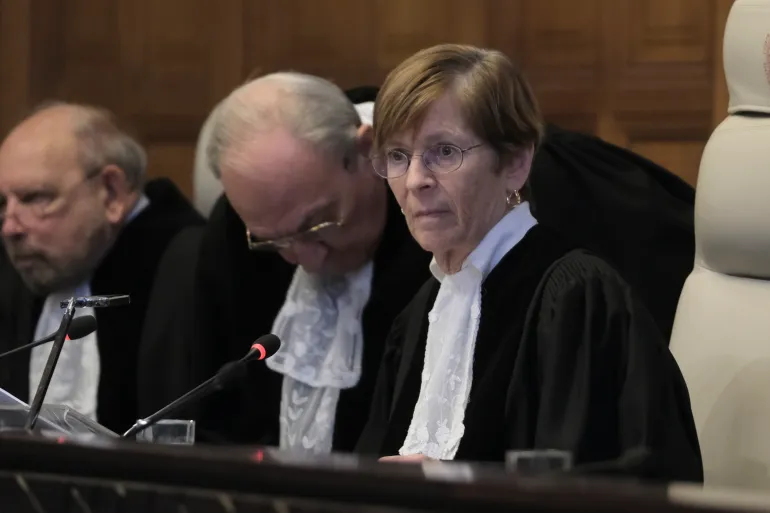The International Court of Justice (ICJ) has delivered its ruling on the emergency measures requested by South Africa in its genocide case against Israel over its war on the Gaza Strip.
The court said, among others, that Israel must take steps to prevent acts of genocide in Gaza.
In a sweeping ruling, a large majority of the 17-judge panel of the ICJ voted for urgent measures which covered most of what South Africa asked for but stopped short of ordering a ceasefire.
South Africa had asked the court for an immediate ceasefire.
However, the court ordered Israel to refrain from any acts that could fall under the genocide convention and also ensure that its troops do not commit any genocidal acts in Gaza.
The court stated that it has jurisdiction to rule in the case.
Judge Donoghue ordered Israel to take measures to prevent and punish direct incitement of genocide.

The ruling has created international legal obligations for Israel. She said all parties in the Gaza Strip are bound to international law.
The court declared that Israel must ensure the preservation of evidence of alleged genocide.
Judge Donoghue ordered Israel to report to the court within one month on what it is doing to uphold the order to take all measures within its power to prevent acts of genocide in Gaza.
She also said measures must be taken to improve the humanitarian situation in Gaza, stating that Israel must allow humanitarian aid into the Strip and take more measures to protect Palestinians.
The court said that it recognises the right of Palestinians in Gaza to be protected from acts of genocide. Palestinians appear to be a protected group under the genocide convention.
Frustration Over Court’s Inability To Order Ceasefire
Cheers erupted among pro-Palestine supporters who gathered outside the ICJ in The Hague when the court ruled that Israel must “take all measures within its power” to prevent all acts within the scope of the genocide convention.
However, many pro-Palestinian supporters voiced frustration that the top UN Court stopped short of ordering a ceasefire in Gaza.
“It is very good that the ICJ did not throw out the genocide case at Israel’s request but the courts orders to prevent genocide won’t be followed without a ceasefire. We can only hope now that humanitarian aid is allowed into Gaza,” Joris Doting, a Dutch pro-Palestine protester, said.
According to a reporter’s statement, there is a great deal of frustration and resentment because the one element that every single Palestinian across the Gaza Strip was waiting for isa cessation of all hostilities and of the ongoing intense bombing.
The reporter disclosed that up until the statement was read, there was bombing going on in the city of Khan Younis and the northern part of the territory.
The reporter added that famine, systematic destruction of civic institutions and every means of life and forced displacement was continuing because of the mass bombing that has been relentless and very destructive and has turned Gaza into a death camp.
Additionally, Lubna Farhat, a member of Ramallah city council, told a news agency that she was somewhat disappointed by the ICJ decision.
Nonetheless, she acknowledged that it was a historic moment.
“We are very grateful and thankful for South Africa for filing this case, but what Palestinians aspired for was an immediate ceasefire,” Farhat said, adding that it was disheartening that the court did not call for an end in Israel’s military operations for the humanitarian aid to be allowed into Gaza.
She said that the ruling would only “escalate” settler attacks in the occupied West Bank and increase the attackers’ sense of impunity.



















